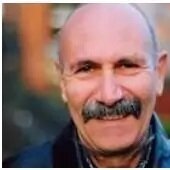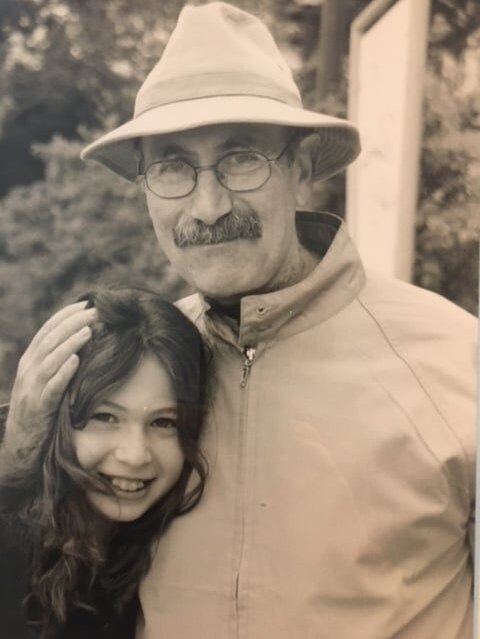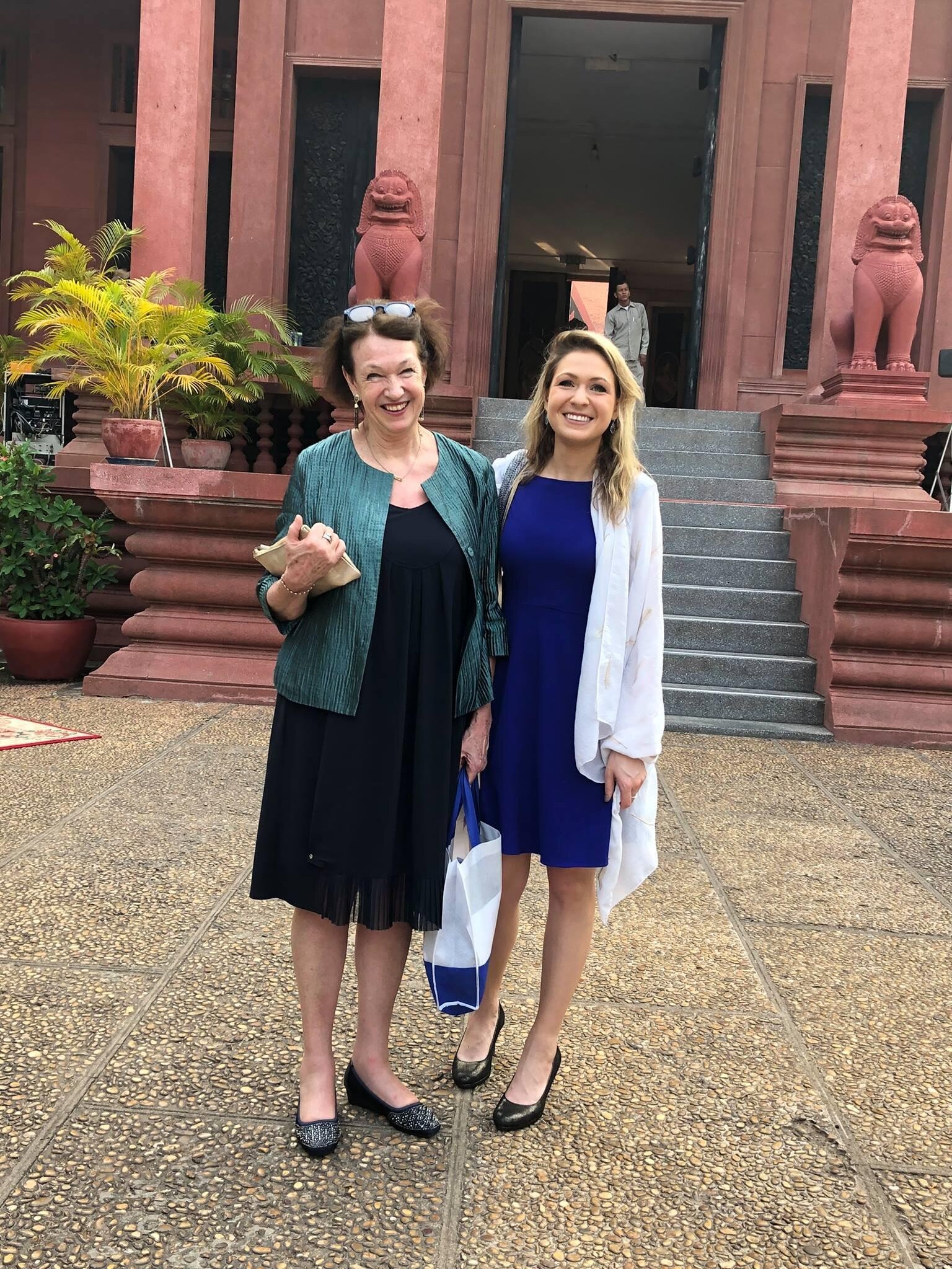Amir D. Aczel

Amir Dan Aczel (6 Nov 1950, Haifa, Israel- 26 Nov 2015, Nimes, France) was an Israeli-born American mathermatician, lecturer in the history of mathematics and science, and author who researched the origins of “0”, founding a quite convincing answer in Cambodian history.
He has recounted how, while traveling around the Mediterranean on board the liner Theodor Herzl, captained by his father, he developed a fascination for numbers when he crept into the Monte Carlo Casino at age 7. His father also taught him to steer and navigate a ship at age 10, which later inspired his book The Riddle of the Compass. The question of “where do the numbers, and ‘0’ in particular, come from?” occupied since his childhood, exploring Hebrew and Greek systems of computation, Roman numerals and Mayan calendary symbols, leading the ever-curious mind to the ancient Indian culture [the zero symbol dating from mid-9th century at Chatur-bhuja temple, Gwalior, India] and, after discovering in 2011 George Coedès’ 1931 article “A propos de l’origine des chiffres arabes” [Bulletin of the School of Oriental Studies 6 – 2, 1931: 323 – 28], to Cambodia.
After studying at the University of California at Berkeley and earning a Ph.D. in statistics from the University of Oregon, Amir Aczel taught mathematics at universities in California, Alaska, Massachusetts, Mexico, Italy, and Greece, with a professorship at Bentley College, MA., USA, where he taught classes on statistics and the history of science and history of mathematics. He authored two textbooks on statistics. Starting with Fermat’s Last Theorem (1996), a United States bestseller, Amir Aczel authored numerous books aiming at making science more accessible to the general public.
In Finding Zero (2015), Amir Aczel recounted his 2012 – 2013 quest for a stone stele found in 1891 at the ruined temple of Trapeang Prei in Sambaur សំបូរ (north of Kratie on the Mekong River), bearing the Khmer inscription K. 127, dated to the 7th century, deciphered by Coedès, thought to have been lost for decades, that he found in the storage rooms of the Angkor Conservation and had reinstalled at the National Museum of Cambodia. There was inscribed the year 6“0“5 caka (683 CE), and there was, according to Aczel, the proof that Indian and Khmer civilizations acknowledged the notion of “zero” before the Western world.
During his last years, Amir Aczel settled in France with his wife Debra — they were married in 1984. In 2019, after Amir’s death in 2015, Debra Aczel and daughter Miriam Aczel (to whom Finding Zero is dedicated) launched in Phnom Penh The Zero Project, an international conference-workshop by the Amir Aczel Foundation for Research and Education in Science and Mathematics.
1) Amir Aczel and daughter Miriam. 2) Debra and Miriam Aczel in Phnom Penh for the launch of The Zero Project, 2019 [photos Debra Aczel].
Publications (Books)
- Complete Business Statistics, 1995 [8th Edition, 2012: ISBN 978 – 1935938187].
- Statistics: Concepts and Applications, 1995. ISBN 978 – 0256119350.
- How to Beat the I.R.S. at Its Own Game: Strategies to Avoid and Fight an Audit, 1996. ISBN 978−1−56858−048−7.
- Fermat’s Last Theorem: Unlocking the Secret of an Ancient Mathematical Problem, 1996. ISBN 978−1−56858−077−7.
- God’s Equation: Einstein, Relativity, and the Expanding Universe, 1999. ISBN 1−56858−139−4.
- The Mystery of the Aleph: Mathematics, the Kabbalah, and the Search for Infinity, 2000. ISBN 1 – 56858-105‑X.
- Probability 1: The Book That Proves There Is Life in Outer Space, Harvest Books, January 2000. ISBN 0−15−601080−1.
- The Riddle of the Compass: The Invention that Changed the World, 2001. ISBN 0−15−100506−0.
- Entanglement: The Greatest Mystery in Physics, 2002. ISBN 978−1−56858−232−0 and ISBN 978−0−452−28457−9.
- Pendulum: Léon Foucault and the Triumph of Science, 2003. ISBN 0−7434−6478−8.
- Chance: A Guide to Gambling, Love, and the Stock Market, 2004. ISBN 1−56858−316−8.
- Descartes’ Secret Notebook: A True Tale of Mathematics, Mysticism, and the Quest to Understand the Universe, 2005. ISBN 0−7679−2033−3.
- The Artist and the Mathematician: The Story of Nicolas Bourbaki, the Genius Mathematician Who Never Existed, 2007. High Stakes Publishing, London. ISBN 1−84344−034−2.
- The Jesuit and the Skull: Teilhard de Chardin, Evolution, and the Search for Peking Man, 2007. ISBN 978−1−594−48956−3.
- Uranium Wars: The Scientific Rivalry that Created the Nuclear Age, 2009. ISBN 978−0−230−61374−4.
- The Cave and the Cathedral: How a Real-Life Indiana Jones and a Renegade Scholar Decoded the Ancient Art of Man, 2009. ISBN 978−0−470−37353−8.
- Present at the Creation: The Story of CERN and the Large Hadron Collider, 2010. ISBN 978−0−307−59167−8; updated ed. as Present at the Creation: Discovering the Higgs Boson, Crown, 2012. ISBN 9780307591821.
- A Strange Wilderness: The Lives of the Great Mathematicians, 2011. ISBN 978−1−4027−8584−9.
- Why Science Does Not Disprove God, 2014. ISBN 978−0−062−23061−4.
- Finding Zero, 2015. ISBN 978−1−137−27984−2.
- [with Ken Ono] My Search for Ramanujan: How I Learned to Count. Springer, 2016. ISBN 978 – 3319255668.


